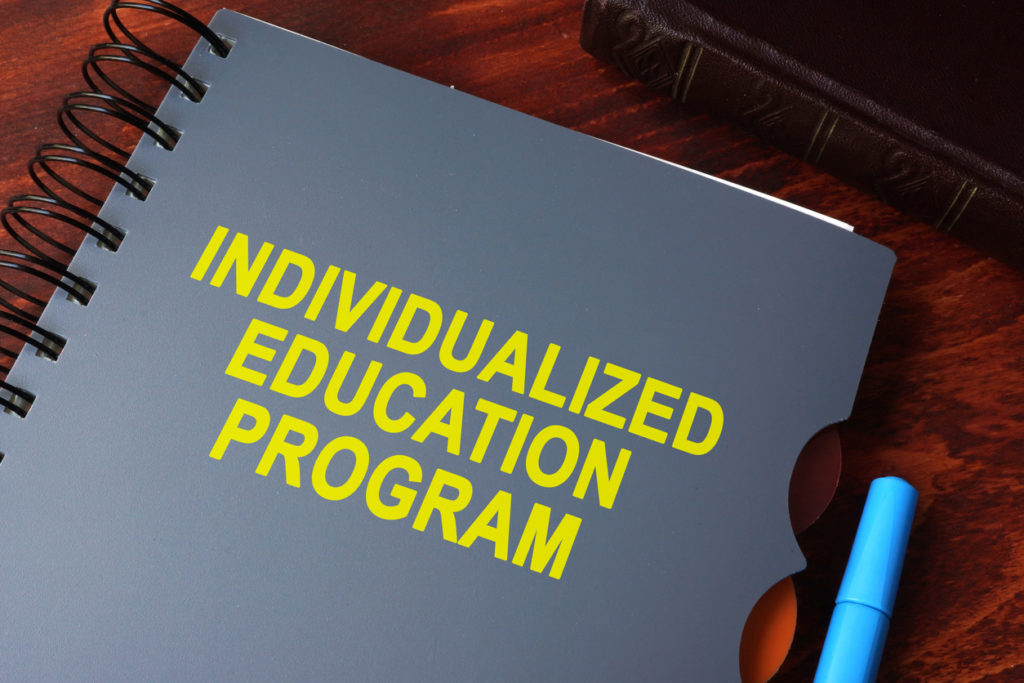We always want the best for our children and to ensure they get the education and other necessary services. You may consider getting an Individualized Education Plan (IEP) for your child with an intellectual or developmental delay. Obtaining an IEP can be complicated, with many steps, but it shouldn’t be.
At Venture Foundation, we would like to share our 38-year experience in fundraising to support children with intellectual delays and funding philanthropies working towards the same mission. Below, we outline nine tips to help you understand and navigate the process of getting an IEP for your child. But we’ll start by discussing what an IEP is.
What Is an Individualized Education Plan?
An Individualized Education Program (IEP) is a legal document developed by the school to provide special education services and support to students evaluated as needing additional help due to their developmental or intellectual delay.
Intellectual delays affect students differently, with cognitive, language, physical, emotional, and social challenges. Student-centered IEPs list goals and objectives to help the student reach specific educational milestones within a year.

Tips for Obtaining an Individualized Education Plan for Your Child With Intellectual or Developmental Delays
1. Evaluate Your Child
Put any preconceived ideas about your child’s developmental delays, if any, to the side and seek an evaluation from a professional who can accurately diagnose them and provide recommendations.
Evaluation and testing will involve an educational assessment, a speech assessment, and psychological testing. Evaluation is never complete without interviews and consultation with the primary caregiver, and it might entail visits to your pediatrician (PCP) or other medical specialists.
Autism and Down Syndrome are two of the most common intellectual or developmental delays. Support is available for families and individuals living with autism and Down Syndrome, including:
- Medical interventions
- Educational resources
- Financial assistance
2. Gather All Necessary Documentation
You will need to collect school records, health reports, or other past evaluations. Schools may require additional testing or data before they accept a student with an IEP. For example, they may require an autism diagnosis or dyslexia testing before they can accept the IEP.
Moreover, schools may also require records from your child’s pediatrician, including immunization documents.
You should have all the results of your child’s evaluation handy before beginning the IEP process unless the demands of the school require various documentation.
3. Understand Your Rights and Obligations
The Individuals with Disabilities Education Act (IDEA) outlines your rights and obligations as a parent in obtaining an IEP for your child. The law also protects your child’s rights and requires that you be informed about your child’s education and actively participate in their IEP.
You should also be aware of your state’s legal requirements for special education services, as these can vary from place to place. For example, the evaluation standards may be different in one state than in the other.
4. Create a Team of Supporters
Having a team of supporters is crucial during this process as it can involve complex conversations and negotiations between:
- Parents
- Educators
- Service providers
- Administrators
Comparing notes and ideas with other parents and professionals can help you identify the best path forward for your child. You’re ultimately the most impactful decision-maker in the matter, but it pays to consult experts in learning and development psychology.
5. Research Individualized Education Plan Options and Know Your Alternatives
It’s one thing to break down a complete package into complete constituents, but the infinite options available in IEP design can cause even the most competent professionals to become overwhelmed.
Don’t be too fearful of opportunity costs; evaluate the alternatives available to you. Thus, you can identify the most suitable path for your child.
Remember, an IEP should be a living document, subject to feedback-based changes or amendments as needed. One-size-fits-all approaches seldom work, so be sure to consider your child’s individual needs and preferences.
6. Prepare for Meetings
It’s time to prepare for meetings with educators and administrators once you’ve gathered all the necessary documents and identified the team of supporters. Familiarize yourself with the following:
- The evaluation process
- The relevant laws
- Any other topics that may come up
It helps to take detailed notes at all meetings and keep copies of all documents. In addition, always ask questions and ensure that your team is on the same page.
7. Obtain Financial Support
Financial support to the IDD community comes from various sources. School districts may offer access to special services, such as speech therapy and occupational therapy, or even pay for transportation costs.
Families may also qualify for other forms of assistance, including state-funded programs, grants, and scholarships. Many organizations also provide financial aid to those in need.
For example, the Venture Foundation, Ltd. came to life in 1984 to spread the word about children with developmental delays. It works to fill the financial safety gaps facing the IDD community, unfunded or partially funded by the government.
This foundation fundraises via:
- Events
- Private and public grant solicitations
- Private foundation applications
- Family donations
8. Support the Social Needs of the IDD Community
Social inclusion is an important part of any IEP for a child with IDD. It allows your child to interact, play, and learn with peers.
To ensure social integration, consider the following:
- Organizing special outings for kids with IDD
- Arranging playdates or field trips
- Finding a buddy program for your child
- Encouraging positive interactions and relationships with other children
- Making the school environment accepting and welcoming to all students
Honestly, some things may be out of your control, but you can plan and provide positive experiences for your child. Working with other families helps find support and resources.

9. Ensure Every Child Has Fun
On account of IDD, no child should be excluded from fun activities, such as:
- Parties
- Camps
- Sports teams
- The arts
Non-profit organizations like Venture Foundation, Ltd. raise funds to improve the lives of those with IDD, including by funding its sister organization, Venture Together,- which DOES run camps, programs, etc., to promote inclusion.
Venture Foundation’s fundraising efforts, at the direction of an executive board, are dedicated to enabling children with IDD to have an equal chance at having fun.
The Lowdown on Individualized Education Plans
To sum up, educating yourself on the IEP process and obtaining financial support is essential in helping your child succeed. Always keep detailed notes of meetings and other exchanges, as this will help ensure everyone is on the same page.
Attend our events, and donate to help us continue supporting children with intellectual or developmental delays. Together, we can ensure every special child can have fun and catch up with education!
Contact us at Venture Foundation, Ltd. to learn more about how we can help IDD families.






